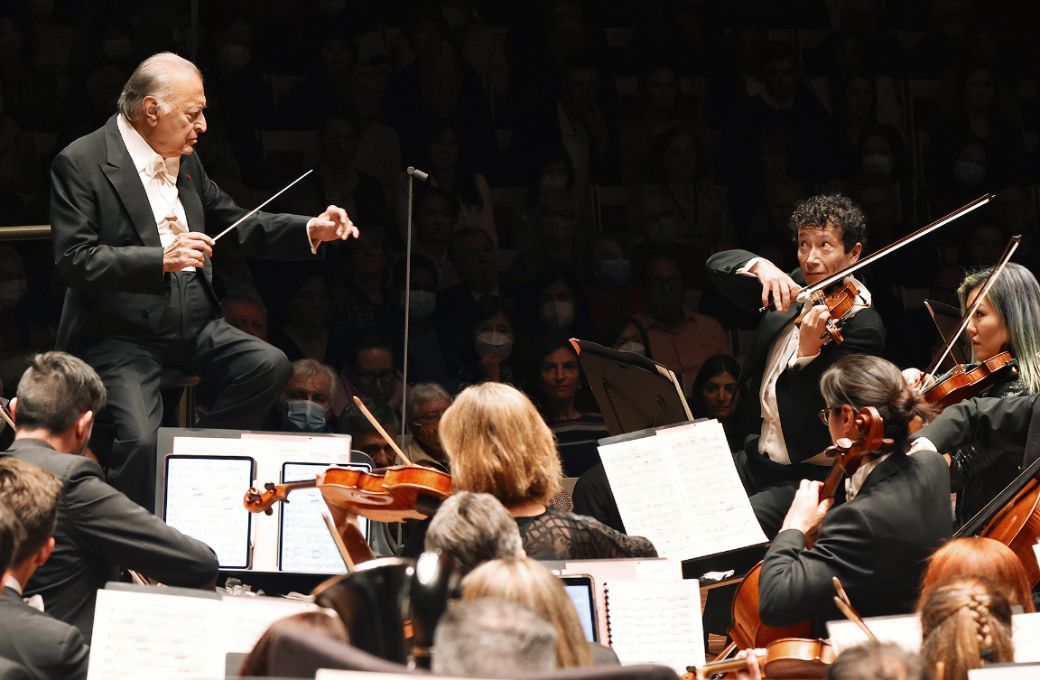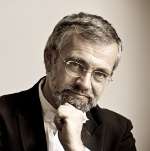One could hardly think of a more international combination of artistic forces than an Indian star conductor with Australian musicians from 55 orchestras around the world, for symphonic poems by a German composer in concerts given in the UK one week (at the BBC Proms and the Edinburgh International Festival), Melbourne and Sydney the next. Such a charismatic collaboration could only be brought to life if the logistic preparation was immaculate and if musicians of such calibre as Zubin Mehta and the Australian World Orchestra merged their combined talents, as they did for the third time in the last decade.

The programme for the Australian concerts was ambitious in the extreme: three of the grand-scale symphonic works by Richard Strauss. The octogenarian Mehta may have walked onto the podium in a cautious way, yet his command of these compositions seemed both reliable and undiminished. Responding to his measured, yet firm hand movements, the orchestra roared energetically or whispered with barely audible intimacy as the score required. In Don Juan, Mehta’s precise gestures drew the utmost concentration from his musicians and focussed attention from the audience, lest they miss any detail of the libertine hero, as seductive in Lord Byron’s words as in Strauss' tone poem. The brass and the woodwind sections sounded noticeably resonant and more powerful than usual, adding a brilliant shine to the loud passages. Clearly Mehta does not think highly of the famous sentence, often misattributed to Strauss: “Never look at the brass – it only encourages them!” Rebecca Chan’s violin solos were impressively confident, yet never without a delicate sensitivity. Other instrumental solos, whether from the first oboe or the group of the horn section, were unfailingly outstanding.
In contrast, Till Eulenspiegels lustige Streiche was less generous in its freedom of expression. While still a technically remarkable execution, this performance concentrated more on emphasising the clarity of Strauss’ brilliant polyphony and less on the rhythmic spontaneity of emotions. This may also have been a well thought-through consideration of 100+ musicians on stage in eminent form (many of them principal players in their own orchestras) who perhaps had never before performed this particular repertoire together. In lieu of a more luxurious sense of rubato, the audience was offered an unashamed joy of lush orchestral sound, utterly expressive in both its turbulence and intimate feelings – certainly an enjoyable reward.
As is customary in AWO concerts, different principals took over leading their sections after the intervals. This was perhaps most noticeable in the role of the concertmaster – not more or less capable, only very different in artistic approach – who had to perform the fiendishly difficult, extended violin cadenza in Ein Heldenleben. Daniel Dodds’ tone elegantly mixed extremes of emotions, as he conquered one instrumental summit after the other with his reliably solid interpretation.
Mehta’s conducting was effortless and extremely clear. Not unlike Strauss himself, who was almost exactly Mehta’s age when conducting his last concerts over seventy years ago, his movements were frugal, yet created a most impressive soundscape.
As an unexpected celebration, the concert finished with Mehta being appointed by the Governor General as an Honorary Companion of the Order of Australia, an award for eminent achievement and merit of the highest degree in service to Australia. Under his leadership, the musicians made the National Anthem’s words particularly true: “Our land abounds in nature's gifts, Of beauty, rich and rare…” Bravo AWO!


